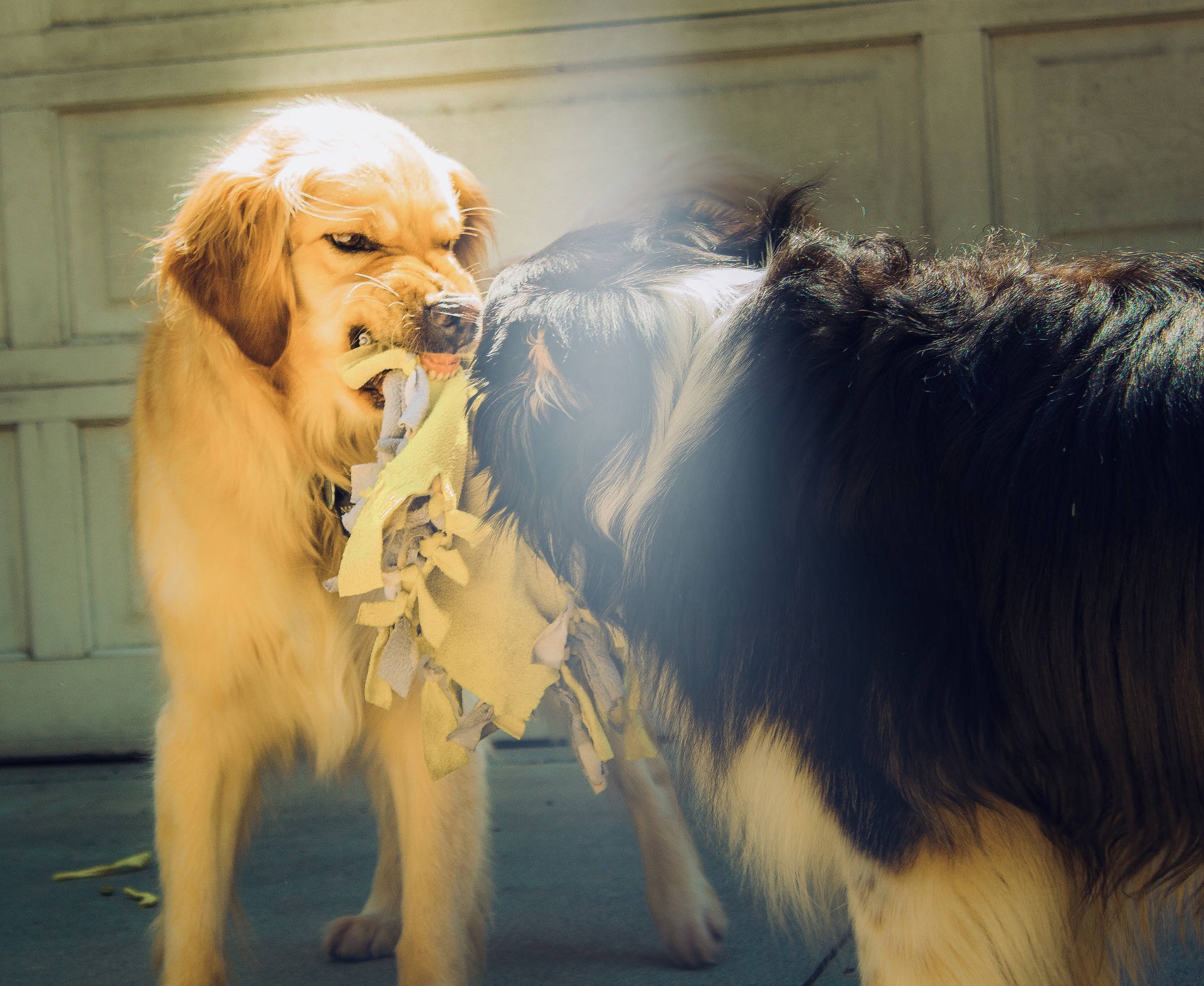While dogs can’t speak to their owners directly, they utilize a variety of tools in order to communicate their needs. Body language, vocalizations, and even aggression are ways they try to let us know what is going on. Aggressive behavior is scary and frustrating, especially in a pet you’ve had for years, but know that your pup isn’t acting out “just because”. There is likely an underlying issue they need your help to take care of. A formerly happy, friendly pet who becomes suddenly aggressive may be telling you that something serious is going on.
Pain from an injury is one of the easiest causes to rule out. If your dog is fine with you petting his head but tries to bite when you touch his leg or back, there could be pain associated with those areas. Your veterinarian can quickly check for pain, and prescribe medication or other therapy to help get your happy pooch back.
Suddenly aggressive behaviors which are caused by illness will require more intense diagnostics.
- If your dog is older, they could be suffering from dementia – leading to them lashing out because they are scared or confused.
- Hypothyroidism can also cause aggression. If your dog is showing other clinical symptoms such as excessive, rapid weight gain and hair loss, it could be worthwhile to bring that up with your vet.
- Brain tumors and cognitive dysfunction are also a possibility. Though less likely to occur and more difficult to diagnose, keep them in mind if other diagnostics come back negative.
Aggression in Rescue Dogs
Nothing ruins the excitement of bringing home a new dog like coming face to face with aggressive behavior.
Fear-based aggression is common, but not irreparable, especially in adopted pets.
The hard truth is that many shelter animals have a history of abuse or neglect. Those experiences can inform the way they interact with the world and it is up to their new owners to change that point of view.
- Give your new pup time to acclimate to their surroundings, and do not push them to be social before they are ready. It can take a dog months or even years to show their true personality, so the key is patience and giving your pup plenty of love.
- Don’t crowd your dog while he is still getting used to his new environment. If he is crate trained, it can be useful to have his crate in a high-traffic area. That way he can be around the family while still having a safe space to retreat to if he feels overwhelmed.
- Offer plenty of treats, especially when he chooses to spend time with you.
- Seek out training classes that you and your dog can do together, which can help strengthen your bond and promote trust.
Resource Guarding
Resource guarding is when a dog shows possessiveness over food or toys, and requires a different approach than fear-based aggression. Dogs might display aggression over a random object they found in the house, or they might only care about certain “high-value” objects, like their favorite person or treats. When this is the case, the dog is responding to the perceived threat that the object is being taken from them, whether or not this is the case. You may wish to solicit help from a trained behaviorist, as resource guarding can be unpredictable and may lead to bites.
By nature, most dogs are not typically mean or fearful. If your dog becomes suddenly aggressive, it is a sure bet that something in their world has either hurt them, or threatened them. Patience and attention will likely solve the problem, but if you need additional help, call the experts at Gulf Coast K9 Dog Training. We are dedicated to the health and happiness of your dog.





